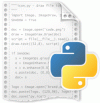 |
Publications
Overview
Here is an overview of our publications to date.
Each article has a subsection in the menu to the left, where relevant material can be found.
- A Machine-Learning Approach to Predict Main Energy Consumption under Realistic Operational Conditions, COMPIT'11, J. P. Petersen, D. J. Jacobsen, O. Winther (2011) [download proceedings]
Abstract: We present a novel and publicly available data set of high quality sensory data collected from a ferry over a period of 2 months, and investigate state of the art machine-learning methods for prediction of main propulsion fuel efficiency. Neural networks are applied in both instantaneous and predictive settings. Performance results for the instantaneous models and examples and discussions of the practical advantage of the predictive models are given. The presented models have been successfully deployed in a trim optimization application onboard one of DS NORDEN's product tankers.
- Statistical Modelling for Ship Propulsion Efficiency, Journal of Marine Science and Technology, J. P. Petersen, D. J. Jacobsen, O. Winther (2011) available at [Springer]
Abstract: This paper presents a state-of-the-art systems approach to statistical modelling of fuel efficiency in ship propulsion, and also a novel and publicly available data set of high quality sensory data. Two statistical model approaches are investigated and compared: Artificial Neural Networks (ANN) and Gaussian processes (GP). The data presented is a publicly available full-scale data set, with a whole range of features sampled over a period of 2 months. We further discuss interpretations of the operational data in relation to the underlying physical system.
- Improving Ship Propulsion Efficiency by Dynamical Modeling of Sensor Data, J. P. Petersen, D. J. Jacobsen, O. Winther (2011) will be presented by Ole Winther at NIPS2011
Abstract: A rich set of sensor data has been recorded from a passenger ferry over a duration of two months. This data is used to investigate several approaches to building advisory systems for the trim of the ship in order to improve the propulsion efficiency. An accurate description of effect of trim changes has to take the temporal influence on other variables into account. In this work we therefore investigate probabilistic methods for modeling the dynamics of the ship. The first is a traditional approach using a time-delay neural network (TDNN), where the residual noise is represented by a multivariate Gaussian distribution. The second method goes beyond the stationary noise assumption by fitting a Gaussian mixture model (GMM) to the joint distribution of state variables at two consecutive time points. Probabilistic predictions with confidence intervals are obtained by propagating several state particles in the conditional model. The GMM based model is shown to give a more realistic estimation of uncertainty.
Applicative Domain Determination for a Ship Operational Model, journal not decided yet, J. P. Petersen, D. J. Jacobsen, O. Winther (2011)
Here are the bibtex entries for your convienience:
@article {springerlink:10.1007/s00773-011-0151-0,
author = {Petersen, J. P. and Jacobsen, Daniel and Winther, Ole},
affiliation = {Decision3 Lucas Debesargota 3, 100 T—rshavn, Faroe Islands},
title = {Statistical modelling for ship propulsion efficiency},
journal = {Journal of Marine Science and Technology},
publisher = {Springer Japan},
issn = {0948-4280},
keyword = {Engineering},
pages = {1-10},
url = {http://dx.doi.org/10.1007/s00773-011-0151-0},
note = {10.1007/s00773-011-0151-0},
}
@conference{conference:petersen2011,
author = {J. P. Petersen and D. J. Jacobsen and O. Winther},
title = {A Machine-Learning Approach to Predict Main Energy
Consumption under Realistic Operational Conditions},
year = {2011},
month = {may},
pages = {305-316},
booktitle = {Proceedings of the 10th International Conference on
Computer and IT Applications in the Maritime Industries (COMPIT'11)},
note = {Berlin, Germany May 1--4, 2011.},
url = {http://www.compit.info/}
}
|






